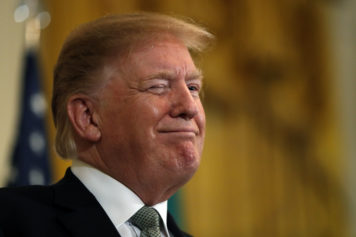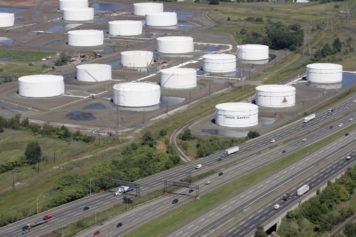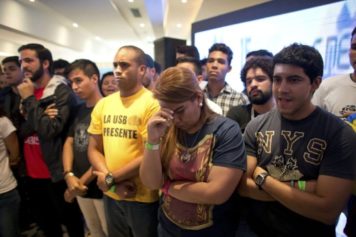While Venezuelan President Hugo Chavez was visited in Cuba by his vice president, Nicolas Maduro, and his prosecutor general, Cilia Flores, the streets and homes of Venezuela are abuzz with rampant rumors about Chavez’s health, which has become the number one obsession of his nation in his absence.
The biggest question is whether Chavez, after his fourth round of surgery to treat his pelvic cancer, will be well enough to return to Venezuela to be inaugurated on January 10 following his recent reelection—and if he is not, what should the country do to fill the leadership vacuum.
While Maduro told the nation on Monday that Chavez was walking and doing exercises—which many people didn’t believe anyway—Venezuelans are now wondering why they haven’t gotten any updates from the vice president in four days.
The rumor mill is in overdrive, with people debating online and in the streets what it all means—Is he even still alive?…Is he about to die?… Maybe he was never even sick to begin with, and is doing this for sympathy.
He’s been gone more than two weeks and Venezuelans still aren’t sure about the nation’s future. Chavez was such a larger-than-life figure and so radically transformed the nature of the Venezuelan political system, not to mention the everyday lives of many Venezuelans, particularly the nation’s poor, that it’s hard to imagine what life would be like without him.
“Everything has been a mystery. Everyone believes what they want about the status of his health,” said Ismael Garcia, a leftist lawmaker who belonged to the Chavez movement until a falling-out a few years ago.
Ten days ago Venezuelans officials reported that Chavez had developed a respiratory infection that is slowing his recovery.
Information Minister Ernesto Villegas read a statement on television to the Venezuelan people about their beloved president’s condition.
“It has been controlled,” Villegas said. “In the opinion of the doctors, this type of ailment is one of the consequences that appear with the greatest frequency in patients who have undergone complicated surgeries.”
The infection appeared a week after the six-hour operation that the government has said involved complications.
Before he left Venezuela, Chavez gave a speech in which he said he may not be able to serve his fourth term because he must undergo his fourth surgery and treatment. He practically pleaded with the populace to choose his vice president and confidant Nicolas Maduro, 52, the former bus driver, as his successor.
If “some circumstance” should prevent him from completing his term or starting his next one, Chavez said, Maduro should not only complete the current term but also be elected president to replace him, “in my firm, irrevocable, absolute and total opinion.… This I ask you from the heart.”
Maduro has been a close friend and confidante of Chavez’s for 20 years—he was among the tiny circle who originally accompanied Chavez to Cuba for his cancer operation. Genial and well-liked, Maduro is considered a more moderate force in the Socialist regime than many other hard-liners.
The Venezuelan constitution dictates that if Chavez resigns or dies, his vice president would have to be elected in a new election called by Congress. Maduro would likely face a strong challenge from Diosdado Cabello, president of the National Assembly and a former army comrade of Chavez’s, and also opposition candidate Henrique Capriles, who was beaten soundly by Chavez in October and who is running for governor of Miranda state in Sunday’s state and local elections.
A potential problem is that the government and opposition disagree on what should happen if Chavez can’t show up—which means it could lead to a divisive and destabilizing legal fight. In addition, no one knows knows if Chavez’s deputies have the ability to hold the country together if he dies.
“Chavez is going to live on. He is a very important man. He has transformed the world with his ideology,” Victor Coba, a 48-year-old construction worker, told the Associated Press as he was standing outside a Caracas church as government officials held a Mass to pray for the leader. “Anyone of us will die first before Chavez.”
According to the AP, “For many, the attachment to Chavez borders on religious reverence. His supporters wish each other ‘Feliz Chavidad’ rather than ‘Feliz Navidad,’ or Merry Christmas. Government officials have started talking about Chavez like an omnipresent deity.”
“Chavez is this cable car. Chavez is this great mission. The children are Chavez. The women are Chavez. The men are Chavez. We are all Chavez,” Maduro said recently while inaugurating a cable car to bring people down from one of the vast slums that creep up Caracas’ hillsides. “Comandante, take care of yourself, get better and we will be waiting for you here.”


